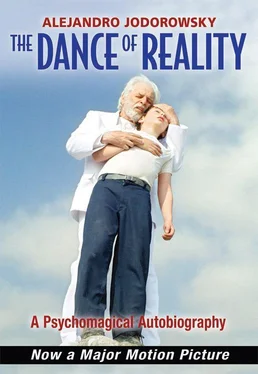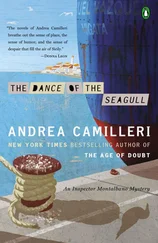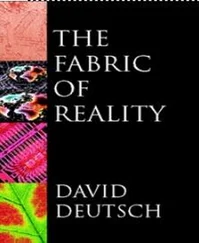I might have fallen into the trap of limiting myself to an art preoccupied solely with asserting political doctrines, but fortunately, another miracle occurred. The lead dancer, Ernst Uthoff, came into conflict with the brilliant choreographer and decided to form his own ballet, drawing on elements of classical dance. Setting aside the problems of the material world, perhaps wanting to forget the suffering of war, he staged a fantastic tale: Copelia. I still remember the name of the dancer who played the puppet whose creator wished to make her human by stealing the soul of a young man in love: Virginia Roncal, a woman who devoted her life to dance. She was not exceptionally beautiful and was short in stature, but her talent was outstanding. The first time I saw her rise up from the table where the inanimate body of the young man whose soul had been stolen lay — first making the rigid movements of an automaton, then little by little feeling life invade her, then finally shaking off the mechanical movements in a sort of frenzy and dancing like a real woman, but then, upon discovering the lifeless young man and realizing that this soul was not her own, returning the life that did not belong to her in a kiss with a supreme effort of honesty and love, then finally resuming her automatic movements — I was moved to tears. I realized that art should not only heal the body but also the soul. All objectives are summarized into one: realizing human potentialities in order to transcend them. Sacrificing the personal in order to achieve the impersonal means nothing is for me that is not for others.
Copelia awoke such admiration in me that I approached Uthoff ’s school to seek admission. While there I was smitten with a dancer with thick curly hair, strong as an oak tree and tall as a magical horse. Fortunately for me, she liked me; I became absorbed by her. I learned to dance through her movements in love. One night when the electricity was out we embraced on the desk where André Racz had done his drawings. A sticky wetness covered both our bodies. Inflamed with pleasure as we were, we were not concerned. Suddenly, the light came back on, and we found that all our skin was stained black. In our enthusiastic movements we had overturned a large bottle of Chinese ink. Nora saw this as a sign: my enjoyment of her movements had made me forget my talent as a dancer. She did not want to be guilty of destroying a vocation that was sacred to her, so she ended our relationship and introduced me to the Yugoslav Yerca Lucsic, a passionate teacher of modern dance. Her courses were intense, the creation in them unceasing. I learned to move according to the nine characters of Gurdjieff ’s enneagram, to imitate all kinds of animals; also to give birth and breastfeed, experiencing what it is to be a mother, analogous to women who danced imitating penile erection and ejaculation. We investigated the expression of the wounds of Christ. I had to dance the spear into my side, the crown of thorns onto my head, and the nails into my feet and hands. Dancing became an activity that allowed me to know what I was, but also what I was not.
Yerca wanted to push beyond limits. And because of this, she died. With her savings she had bought a house on an ocean beach near the capital and spent her weekends there. She entered into a relationship with a fisherman. He was a handsome but uneducated man. Rather than educating him, she encouraged him to affirm himself. She dressed him as a traditional fisherman, in a starched white calico suit with bare feet and a red bandanna around his neck, and introduced him to her friends who came to visit on the weekends who were dancers, artists, professors, university alumni, and people of high society. The couple was very popular. She talked incessantly while he mutely served the drinks. One day we waited, but Yerca did not come to class. Not that day, nor the whole week. We learned from newspapers that the fisherman had murdered her, cutting her body into little bits with a pair of pliers and a knife. By the time they took him to prison, denounced by his comrades, he had already used half of my teacher’s body as bait.
Criminal acts, despite their horror, sometimes cause the same fascination as poetic acts. For this reason, apprentices in psychomagic must be very cautious. Every act must be creative and must end with a detail that affirms life and not death. The fisherman destroyed the body of the dancer. Yerca destroyed the spirit of the fisherman. If, instead, she had made an effort to involve him in her creative world while at the same time she learned to fish, then he might not have murdered her, and perhaps she would have created a beautiful ballet with fishing as its theme.
Lihn, seeing me frustrated by my lack of classes, suggested that we put on a dance recital. “How, where, with what music?” I asked. He replied, “Naked, with only loincloths so that they don’t put us in prison, next to the embassy’s electric station, the generators will be our music.”
The United States Embassy, which was across from Forestal Park, produced its own electricity with powerful generators so that the frequent tremors would not plunge it into darkness when they affected the central power plant. These generators echoed with a regular rhythm for an hour every day beginning at around ten o’clock at night. We invited our friends, and when the rough rhythm began we undressed and began dancing like madmen. The audience soon followed suit. I realized that everything could be danced and that artistic achievement was the result of passionate choices. Once offered the cake, we had only to see it; we grabbed a slice and ate. It was Alice’s cake: when she ate it, she grew or shrank. Such was life, and such was art, a matter of vision and choice. And I finally understood that it was the same for negative aspects. The spirit of self-destruction presents an individual with a menu of all sorts of diseases, physical and mental. The individual chooses his own illness. In order to cure an illness it is necessary to investigate what has led the sick person to select this particular illness and not some other one.
While it is true that reality gives us cake, this does not mean that we should wait motionless with our mouths open. To bring ourselves to fruition, instead of just asking for opportunities to be given to us, we artists, though seemingly insignificant, can offer opportunities to powerful people. This is how I presented myself, carrying a basket full of my puppets, to the offices of the prosperous Teatro Experimental de la Universidad de Chile (TEUCH), the government agency that put on grand shows and ran a theater school. I was received by Domingo Piga and Agustín Siré, who were the general directors, and I said at once, “I want to direct the TEUCH Puppet Theatre!” They responded that TEUCH did not have a puppet theater. I opened my basket and I dumped the puppets out on the desk: “Now you have one!” They immediately gave me the abandoned room behind the clock that adorned the facade of the central building. The poets and their friends helped me to clean away the dust that had accumulated over half a century, and there we began to build the Bululú. This was an activity in which artistic pleasures were mixed with amorous pleasures. The administration provided us with an old bus, and we joined forces with the university chorus and together — the chorus numbering sixty people and we puppeteers consisting of six men and six women — toured throughout northern Chile giving performances. It was a very beautiful, essentially anonymous activity. Hidden, with our arms raised manipulating these heroes, we learned to sacrifice individual exhibitionism. We knew how to put ourselves at the service of the puppets and the audience. What difference was there between puppeteers who were hidden in the shadows, giving energy to the characters that evolved above us, and a congregation of monks concentrating their prayers on exalting God? After putting on a show for the children of miners one of the best puppeteers, Eduardo Mattei, told me, “I feel like a toad full of love, getting glimpses of the full moon.” I hid a wry smile, for his words seemed corny. But I realized how sincere he was when, at the end of the tour, he bade us adieu and became a Benedictine monk. The puppeteers all attended the ceremony at the monastery of Las Condes in which the abbot washed Eduardo’s feet and gave him his new name, Frater Maurus. Thanks to his work with the puppets, Eduardo had found his faith.
Читать дальше












